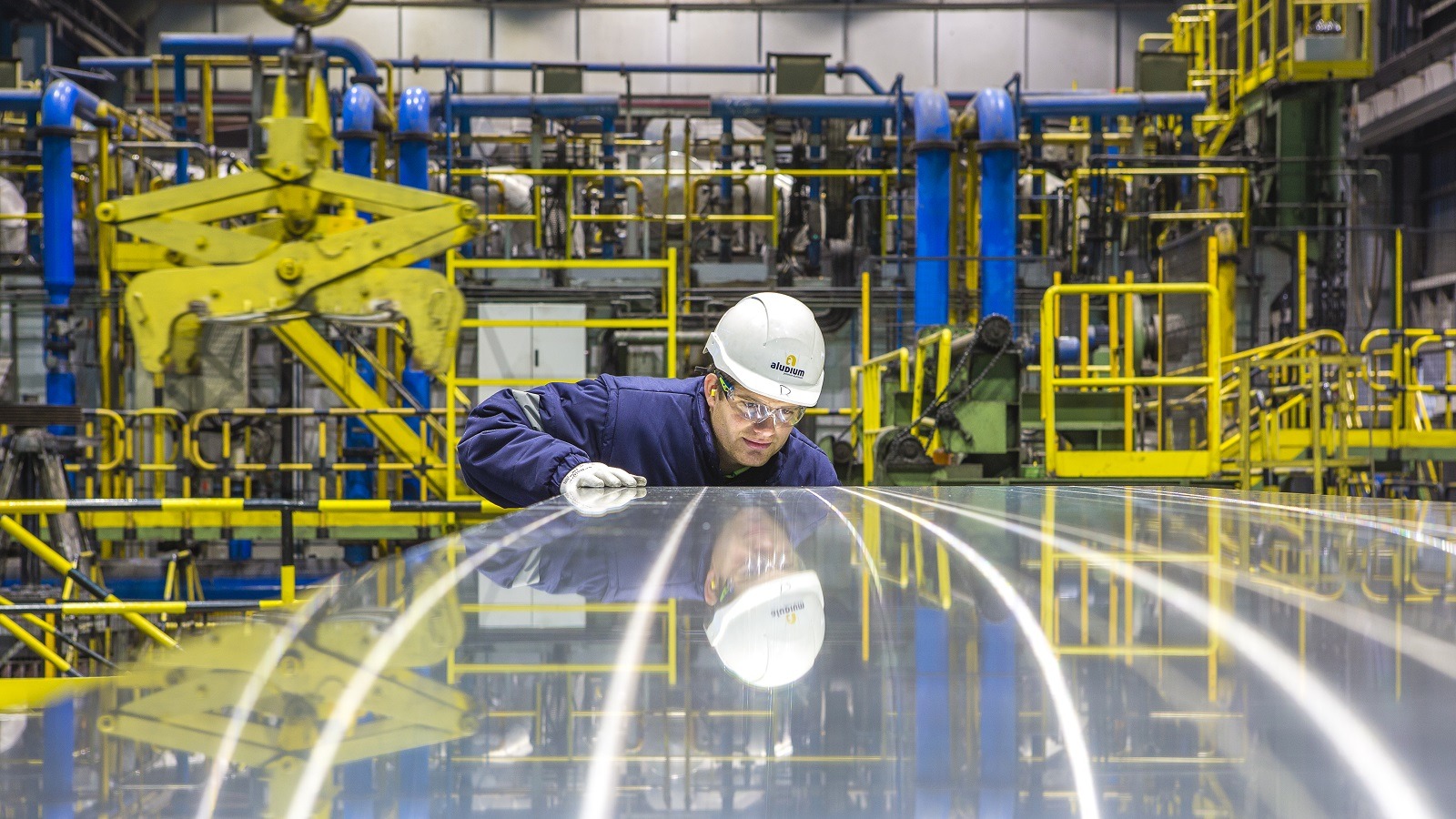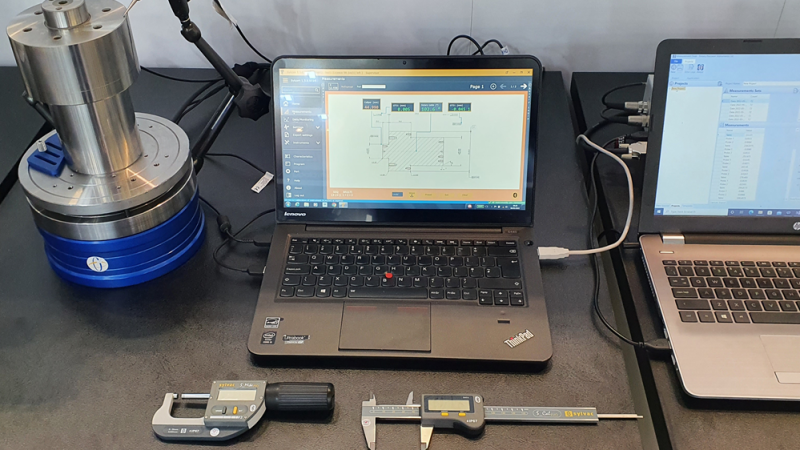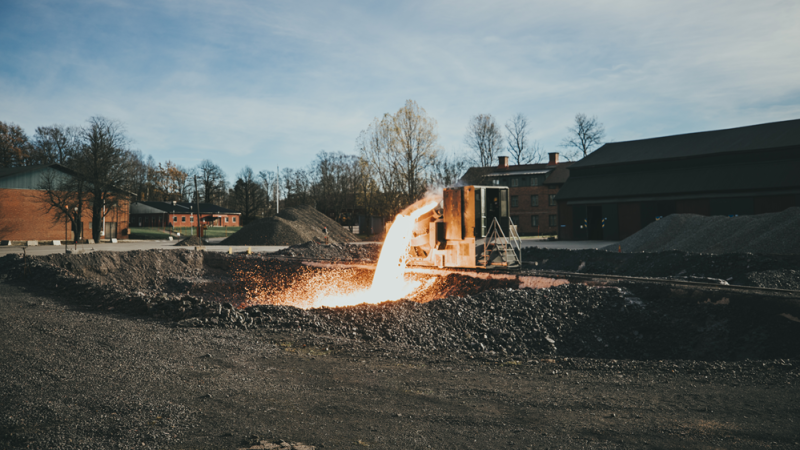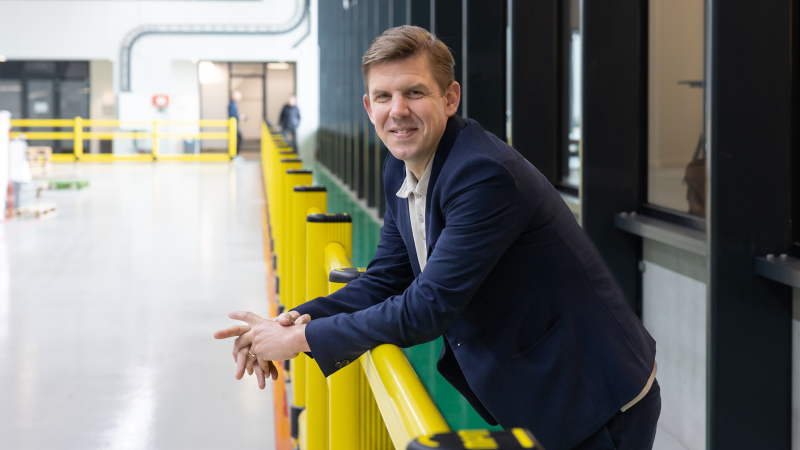Aludium is an integrated, midstream aluminium manufacturer with casting, hot mill, cold mill and finishing capabilities. The company uses a specialised production process to create high-quality aluminium sheets and coils for distribution, building and construction, beverage closure, cosmetic, decorative, foil and other industrial end-markets.
Created in 2015, Aludium encompasses three former Alcoa factories in Spain (Amorebieta and Alicante) and France (Castelsarrasin), as well as a state-of-the-art aluminium research and development centre in Spain known as Cindal. These facilities have been merged under Aludium by Atlas Holdings, a global industrial group dedicated to the promotion of growing industrial companies with a long-term investment horizon.
Aludium Eco
The company is well placed to meet evolving market requirements for sustainability following seven years of investment to become a leader in aluminium recycling. Aludium’s latest innovation is the launch of the low-carbon brand, Aludium Eco, representing products available from January 2023.
“Aludium Eco products have an externally certified carbon footprint of fewer than four tonnes of CO2 per tonne of aluminium that we ship,” says Sam Kinsman, Vice President Strategy & Transformation, adding that Aludium Eco is designed to help customers and end users achieve their own and their end markets’ carbon reduction targets.
The carbon footprint of Aludium Eco is less than half of the average of European aluminium rolled products producers, making it one of the world’s lowest-carbon rolled aluminium products.
To further demonstrate its commitment to sustainability in a broader sense, in 2021 Aludium created the Sustainability Council. This group, meeting monthly, covers the full range of Aludium’s activities and was responsible for the development of the Aludium Sustainability Framework which now guides the company’s actions and investments.
Sustainability Framework
“The Aludium Sustainability Framework was published in February 2022 and is divided into two pillars – climate transition, and people and community. Within those two groups, nine different themes are further specified, i.e., projects areas that can make a difference,” says Sam Kinsman.
He explains that according to the leading GHG Protocol corporate standard, a company’s greenhouse gas emissions are classified into three scopes. Scope 1 (direct site emissions) and 2 (indirect, energy emissions) are mandatory to report, whereas scope 3 (covering the entire operation) is voluntary and the hardest to monitor.
“One of the highlights of last year was a project to measure our company’s full carbon footprint and publish the results externally to ensure full transparency. This was a major feat as Scope 3 emissions cover the whole operation of the business, including supply chain emissions, in other words, everything that has to do with the business.”
As a result, the company created an internal capability to forecast and model emissions based on decisions taken, for example regarding materials and types and amounts of renewable energy. The forecast can then be translated into specific targets.
On the basis of this information, in the autumn of last year, Aludium set its 2025 sustainability targets. “The targets were set not for 2050 or 2030 but for just a few years away, to bring the company down to an average level of four points per tonne of CO2 per tonne shipped, which is about half of where the company was when it came into existence in 2015. This was a major milestone last year.”
Infinite Recycling
The Aludium capability to calculate and then certify externally the carbon footprint of the product has been another milestone, he says.
 “A good rule of thumb is that over 90% of the carbon footprint is in the material itself. Primary aluminium is produced from bauxite, which is mined from the earth and goes through a series of traditional energy-intensive upstream processes. By the time it reaches our point in the value chain, this represents about 90% of the product carbon footprint, which is significant.”
“A good rule of thumb is that over 90% of the carbon footprint is in the material itself. Primary aluminium is produced from bauxite, which is mined from the earth and goes through a series of traditional energy-intensive upstream processes. By the time it reaches our point in the value chain, this represents about 90% of the product carbon footprint, which is significant.”
This is a good reason to increase the focus on recycling. To this end, in 2022 the company invested €12 million in its Alicante plant to more than double its recycling capacity. “By focusing on the recycling element, we can continue driving emissions lower.”
Summarising last year’s efforts, Sam Kinsman affirms that not only have significant internal improvements been made, but now Aludium Eco provides customers with the traceability of its carbon footprint, helping them to address their own sustainability reporting requirements and gain a sustainable competitive advantage – a formidable achievement.
Ready for Future Demand
The importance of these efforts has become even more evident given the latest developments in Europe’s climate change arena. In December 2022, the European Parliament and Council of the European Union agreed on the EU Carbon Border Adjustment Mechanism and related regulations, which will significantly impact the cost of production with regard to CO2 footprint.
“While we don’t yet have clarity on every step that will take place over the next 10 years, we are quite happy that today we can already give a customer a path to lock in low-carbon supply and mitigate those challenges. Knowing exactly where the material is coming from and its certified carbon footprint can be an important differentiator in their market.”
Capacity-wise, Aludium is ready for the future. Annual production remains at around 200,000 tonnes and the investment in the Alicante plant will further increase the amount made from recycling, currently at 70%. “The expanded plant at Alicante will become operational in Q4 of 2023, meaning that there will be a real step change at the beginning of 2024 – the amount of aluminium recycling capacity in Alicante will almost triple,” notes Mr Kinsman.
In conclusion, he affirms that it is important that people are aware of this development. “Industry will demand more low-carbon products and will want to understand the carbon footprint of suppliers. The efforts and investment of the past year will make us ready to face these new market requirements.”







